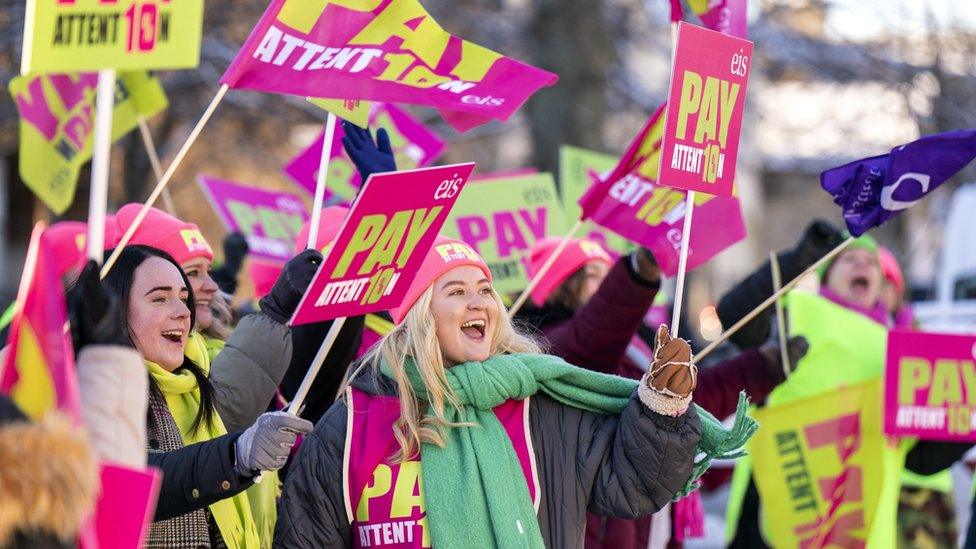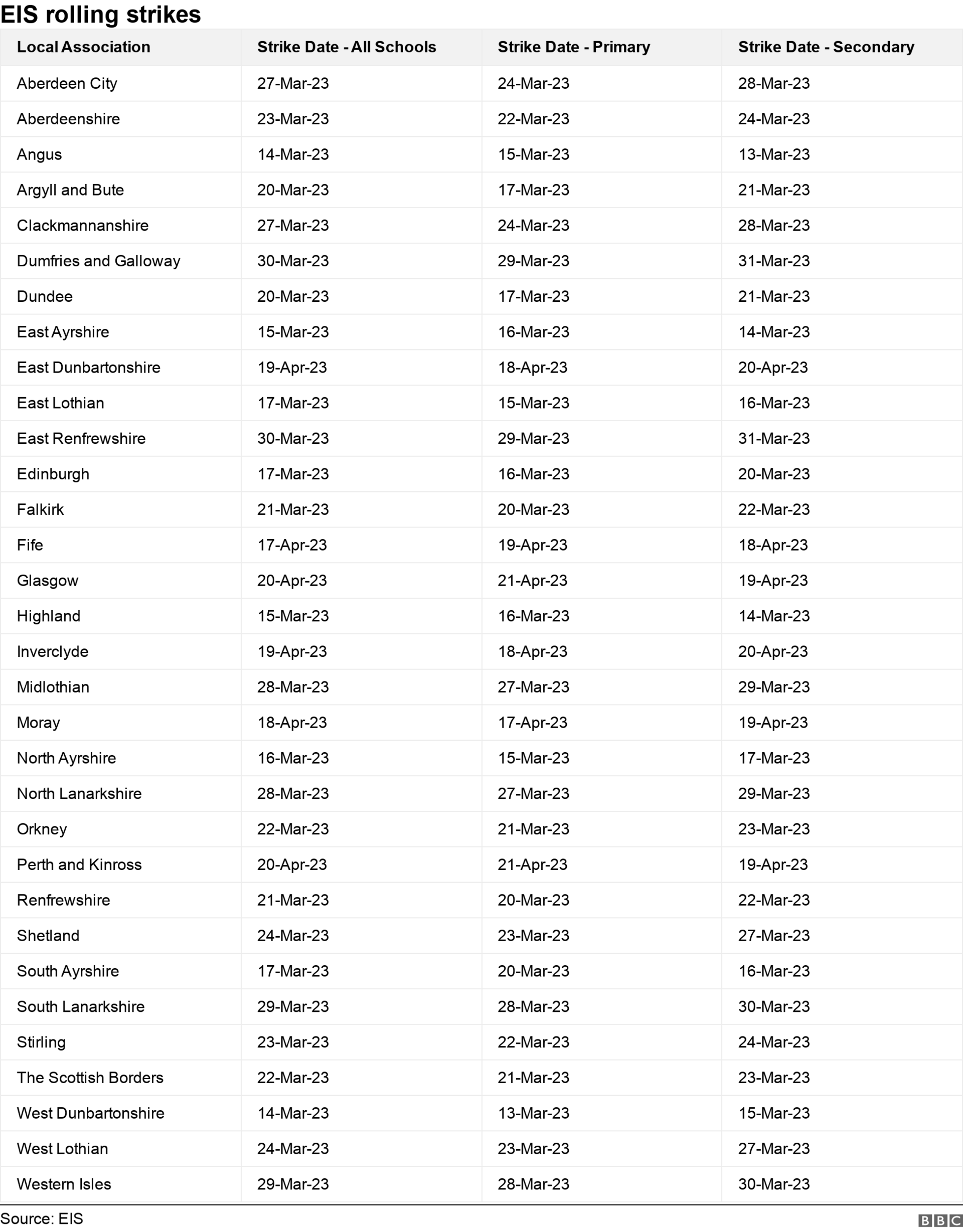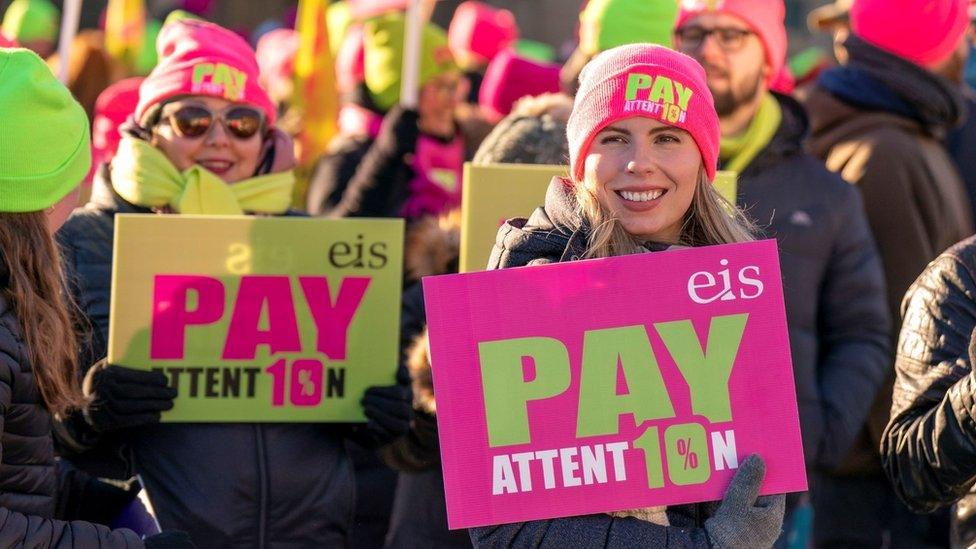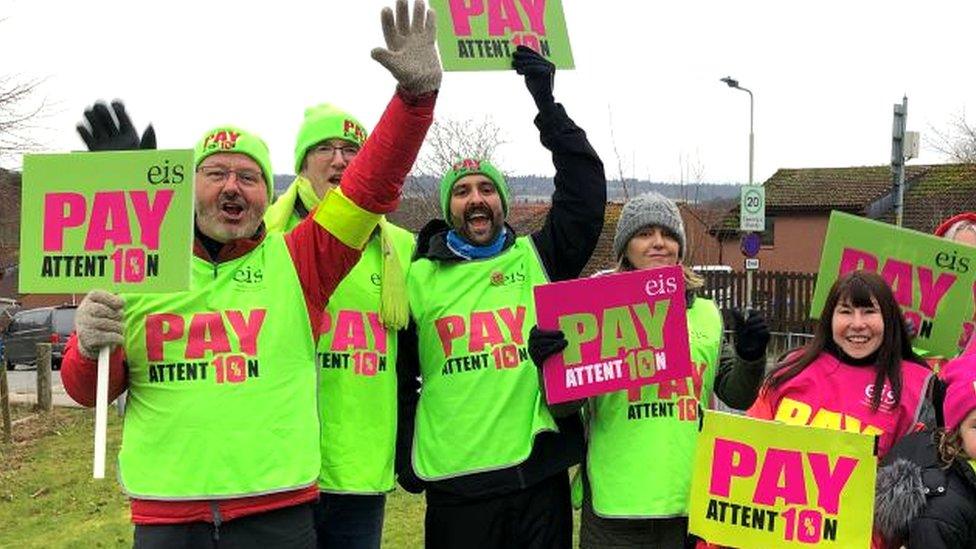New pay offer tabled in bid to end teacher strikes
- Published

Teachers had been calling for a 10% pay rise this year
Scotland's council leaders have agreed to make a new offer to teachers in an attempt to end a dispute over pay.
The full details have been sent to teaching unions, who will discuss the offer on Friday afternoon.
The proposal involves a 7% rise backdated to last April, a further 5% this April and another 2% in January.
Schools across Scotland have been closed by a series of strikes during the dispute, with further action planned in the coming weeks.
The Scottish government has said most teachers would see their salaries rise by £5,200 in April if the new pay offer is accepted.
The latest strikes targeting the constituencies of some Scottish government ministers, including Nicola Sturgeon, are due to be held next week.
Teachers are also due to hold a 20-day wave of rolling strikes between 13 March and 21 April.
The new offer follows intensive talks earlier in the week between the EIS union, Education Secretary Shirley-Anne Somerville and Deputy First Minister John Swinney.
The EIS, the country's biggest teaching union, will now decide whether or not to consult its members on the offer, and whether to call off the scheduled strikes while a ballot is held.
The union's general secretary, Andrea Bradley, said she believed the recent talks had left the two sides "within touching distance of a possible settlement".
The EIS will hold meetings on Friday afternoon to discuss the new proposal, with Ms Bradley saying she was hopeful that "we can move very quickly to a position where we can consult members on the offer".
The union had been calling for a 10% pay rise this year, but has said a "credible" new offer could see strike action being suspended.
Another teaching union, the SSTA, has already said it will conduct a formal online ballot of its members on the improved offer.


The reaction of the EIS union to the new pay offer will be crucial as it is by far the largest union in Scottish education.
If it decides to consult its members and recommends that they accept it, the dispute would appear to be drawing towards its conclusion.
But if it rejects the offer, it would be a huge blow to hopes of a resolution.
If the EIS decides to consult its members, it would be wrong to presume how they will vote.
Some may feel the offer is the best which is possible in the current financial climate.
Others would note that the new offer is still significantly lower than inflation.

Council leaders are responsible for making pay offers to teachers as the employer.
Councillor Katie Hagmann, the resources spokeswoman for council umbrella body Cosla, said the improved offer had been made possible by funding assurances that had been given by the Scottish government.
She added: "It is in all of our interests, not least those of children, young people and families, to conclude the teachers' pay negotiations as quickly as possible to bring back stability and certainty in our schools."
Deputy First Minister John Swinney had earlier said he was "very optimistic" that the dispute would be resolved.
But he warned there will be "programmes and projects that will not be going ahead" because more money has been diverted into the new deal.
Speaking on BBC Good Morning Scotland earlier on Friday, Mr Swinney said all sides had come to a "moment of compromise".
He added: "I'm very optimistic that we are in a position that we will be able to resolve the dispute in the course of today and to avoid any further disruption to education."
The EIS and the NASUWT unions recently rejected an offer worth 11.5% over two years. This included a 6% rise for 2022-23, backdated to last April, and a 5.5% increase for 2023-24.

The dispute has been running for more than a year.
Almost every state primary and secondary school in Scotland was closed on Tuesday and Wednesday as members of the EIS and NASUWT walked out in the latest national strike action.
Pupils in the constituencies of senior politicians have been worst affected, as targeted strike action by members of the EIS last week closed schools for three additional days.
The same areas, which include those represented by First Minister Nicola Sturgeon and Mr Swinney, face another three days of strikes next week.
- Published1 March 2023

- Published28 February 2023
